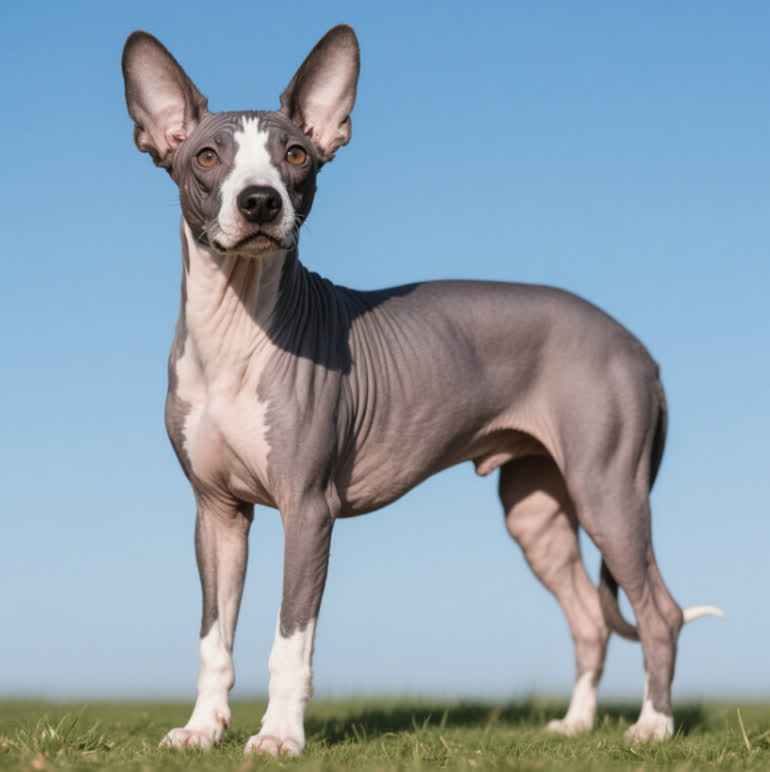The Devon Rex, with its distinctive curly coat and mischievous "pixie" appearance, has long been a beloved breed among cat lovers. As we enter 2025, the International Cat Association (TICA) has unveiled significant updates to the Devon Rex breed standard, aiming to refine the breed’s characteristics while preserving its unique charm. This comprehensive guide explores the 2025 Devon Rex breed standard updates from TICA, offering insights into the changes, their implications for breeders and owners, and how to adapt to these evolving guidelines.
Understanding the Devon Rex Breed: A Brief Overview
Before delving into the 2025 updates, it’s essential to appreciate the Devon Rex’s history and defining traits. Originating in Devon, England, in the 1960s, this breed emerged from a spontaneous genetic mutation, resulting in its signature curly fur and large, bat-like ears . Known for their playful, dog-like personalities and affectionate nature, Devon Rex cats are often called "monkey cats" due to their agility and curiosity .
TICA’s breed standards serve as a roadmap for breeders, ensuring consistency in physical traits, health, and temperament. The 2025 Devon Rex breed standard updates reflect TICA’s commitment to enhancing the breed’s welfare and alignment with modern breeding practices.
Key Updates in the 2025 TICA Breed Standard
1. Revised Coat Texture and Density Requirements
The 2025 standard places greater emphasis on the Devon Rex’s unique coat, which should be "soft, curly, and resilient" with a "distinctive wave pattern" . Breeders are now instructed to prioritize cats with dense undercoats, as thinner coats may be penalized. Additionally, the standard clarifies that kittens under six months old may have less defined curls, a natural developmental phase that should not affect their evaluation .
2. Head Structure and Facial Features
The breed’s "modified wedge" head shape remains a focal point, but TICA has introduced stricter guidelines for facial proportions. The forehead should now exhibit a "gentle curve" transitioning to the nose, with a noticeable stop (indentation between the eyes and forehead) . Judges will also look for prominent cheekbones and a short, rounded muzzle, ensuring the breed’s signature "elfin" appearance .
3. Body Type and Musculature
The 2025 updates stress the importance of a "medium-sized, athletic body" with well-developed muscles. While the Devon Rex should maintain a slender silhouette, excessive thinness or fragility will be discouraged. Breeders are advised to prioritize cats with broad chests and strong hindquarters, reflecting the breed’s natural agility .
4. Eye Shape and Placement
Eyes are a critical aspect of the Devon Rex’s expressive face. The 2025 standard specifies "large, oval-shaped eyes" set wide apart and angled slightly toward the ears. Judges will now deduct points for overly round or small eyes, as these deviate from the breed’s desired appearance .
5. Health and Genetic Testing Mandates
TICA has updated its health requirements to include mandatory testing for Burmese hypokalaemia, a hereditary condition that causes muscle weakness and mobility issues in Devon Rex cats . Breeders must provide proof of negative test results for both parents before registering kittens. This change underscores TICA’s commitment to reducing genetic health risks within the breed.
6. Tail and Paw Characteristics
The tail should be "long and tapering," with a consistent curl that mirrors the coat’s texture. Paw pads must be pink and oval-shaped, with no abnormalities in size or placement .
Implications for Breeders and Owners
The 2025 Devon Rex breed standard updates bring both challenges and opportunities for breeders. While stricter health testing and physical requirements may increase breeding costs, they also enhance the breed’s long-term viability. Owners can expect healthier kittens with more predictable temperaments, aligning with TICA’s focus on welfare .
For potential owners, understanding these updates can help in selecting a reputable breeder. Look for breeders who adhere to TICA’s guidelines, provide health certifications, and prioritize the breed’s unique characteristics.
How to Adapt to the New Standards
Educate Yourself: Familiarize yourself with the updated standards through TICA’s official documentation and breed-specific resources.
Collaborate with Breeders: Engage with breeders who actively participate in TICA shows and follow the new guidelines.
Monitor Health: Regularly screen your Devon Rex for genetic conditions like Burmese hypokalaemia, even if they’re not yet symptomatic .
Promote Responsible Breeding: Advocate for ethical practices that align with TICA’s standards, ensuring the breed’s continued health and popularity.
The 2025 Devon Rex breed standard updates from TICA represent a significant step forward in refining and preserving this iconic breed. By focusing on health, conformation, and temperament, TICA aims to ensure the Devon Rex remains a beloved companion for generations to come. Whether you’re a breeder, owner, or enthusiast, staying informed about these changes is key to supporting the breed’s success.










